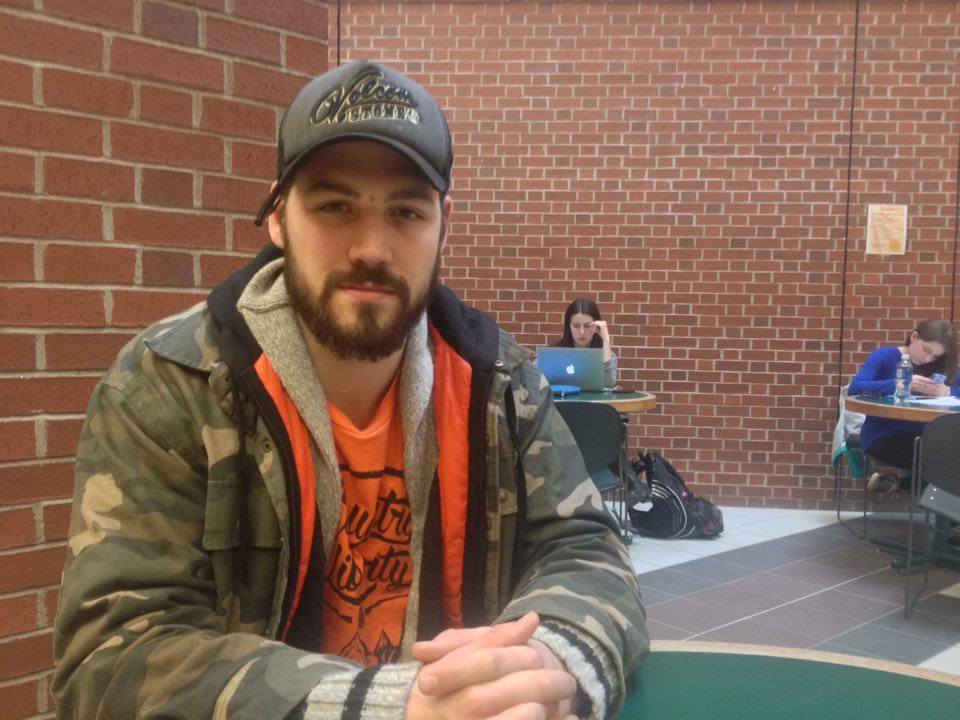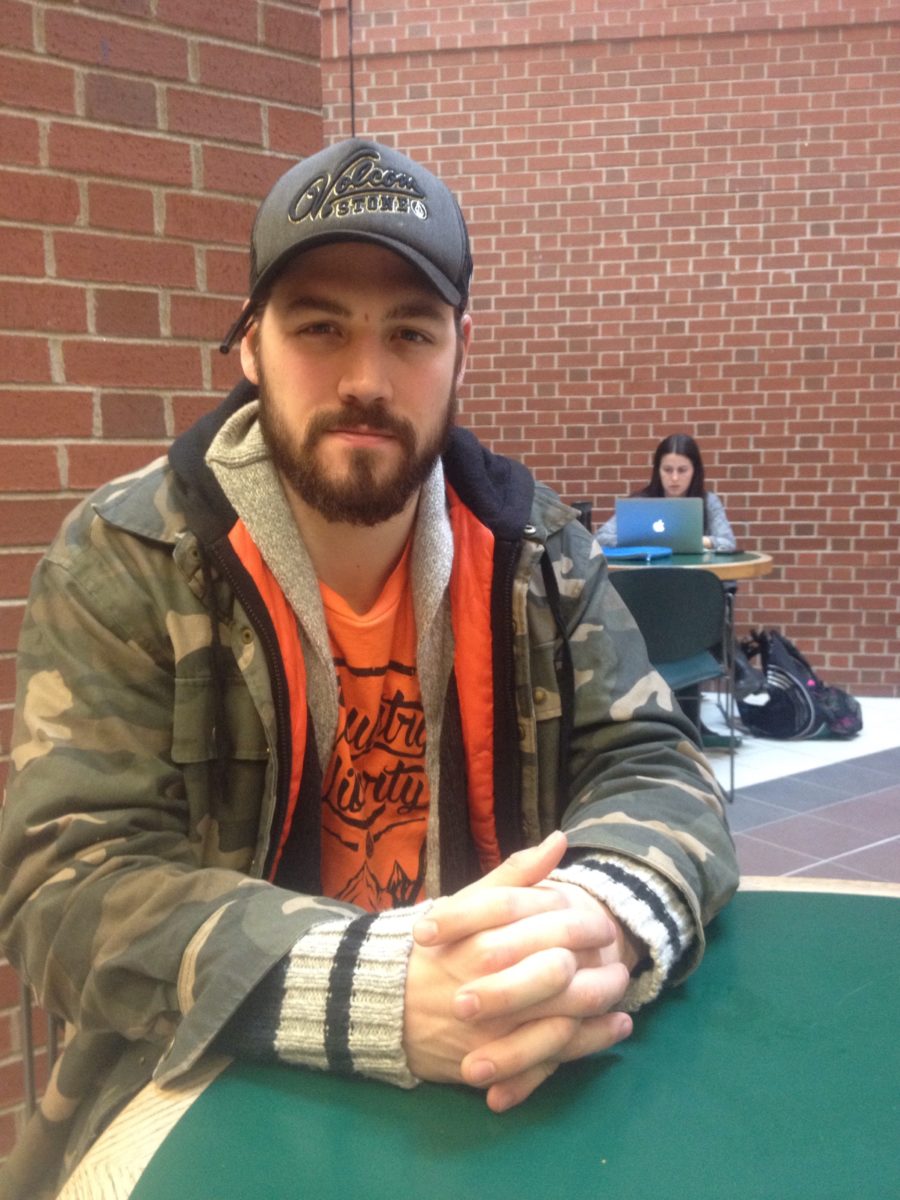Men’s hockey defenceman Sawyer Hannay says he is disappointed about the cancelation of the St. Thomas

Sawyer Hannay, men’s hockey defensemen, says many of his teammates sacrificed much of their lives to become a university-level athlete.
“As both an athlete [and] an academic future alumnus, I’m extremely disappointed,” Hannay said. “I don’t think school nor hockey teaches a quitting mentality and I really feel we gave up on the men’s hockey team.”
On Monday, Dawn Russell, president of the university, released a statement announcing the cut to the student body. In that email she wrote the university expected to save $245,000 annually from operating costs, athletic financial awards and staffing from cutting the program and called the operating costs of the program, “unsustainable.”
“It was a difficult decision,” said Jeffrey Carleton, communications director, in an email on Monday. “This was a decision made by the senior administration, endorsed by the board of governor, examined by the finance committee of the board and at every stage we looked at it it was a situation that none of us really wanted to make. It was made with a heavy heart.”
Because he’s graduating, Sawyer feels other players on the team suffer more from the decision than he does.
He said a lot of his teammates moved to Fredericton assuming they would play university level hockey for three or four years.
“They’ve been an elite athlete their entire lives and they’ve sacrificed their entire life to get a spot on a university team and that was kind of taken out from underneath them,” Sawyer said. “Those are the guys that I really feel for.”
“What people need to consider is that with men’s hockey if you’re not a top player in tier 2 Junior A or a major junior player, you’re not good enough to play at this level,” Sawyer said.
He said to compete at that level, athletes need to develop their skills until they’re around 20 years old, sacrificing two or three years of their life they could have spent at school.
He said normally athletes are compensated for that loss time, but with the cancellation of the team his younger teammates’ sacrifice is in vain.
“When they walk into their first year at 21 (years old) it’s a little different dynamic than starting first year university at 18,” said Sawyer.
He said the team is still in shock and said well the team hadn’t discussed it, he is surprised there wasn’t just a reduce in cuts instead of an outright cancellation of the program.
Although Sawyer recognizes the hockey team was “slumping,” he said he feels the school has gone against the values athletics and the school taught him in the first place.
“We’ve always been taught when there’s a problem there’s a solution,” Sawyer said. “I feel quitting was the university’s solution.”
Sawyer said the university’s team gave his life focus.
“When I was in high school I wasn’t heavily focused on school. I was worried about hockey and my hockey career,” Sawyer said. “When the opportunity came up to play for university hockey I jumped on because of the hockey but once I got here I saw how much school really had to offer for me and I fell in love.”
“I have hockey to thank for opening the door.”
Sawyer said there hasn’t been any discussion by the team about whether they are considering taking any legal action agains the school.
Carleton said the university cancelled the program instead of reducing the funding because, “you create the circumstance that you can’t succeed.”
Sawyer said he understands that mentality as many of the men’s hockey players have the potential to go further with their careers or have already played in major leagues. He said they are more likely to follow the money than go to university to play recreationally.
Carleton said, at the same time, the university has a $1 million operating deficit the school has to address.
“When it comes to athletics, funding men’s hockey is of a different magnitude and when you remove men’s hockey the athletics budget largely balances,” Carleton said.
Carleton said there is no plans to have a men’s hockey team even at a lower level of play.

